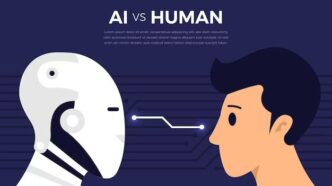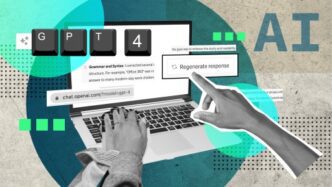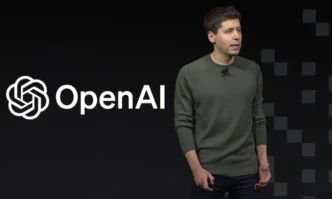Artificial Intelligence (AI) has come a long way—from powering autonomous vehicles to diagnosing medical conditions. Yet, one big question remains: can AI ever truly match the way we think? More specifically, can it pass a cognitive test designed to measure human intelligence? While today’s AI tools like ChatGPT or Google’s Gemini are incredibly good at recognizing patterns and generating responses, they still fall short in mimicking the depth of human cognition.
Cognitive tests such as the Montreal Cognitive Assessment (MoCA) are designed to measure how we think, remember, and understand the world. They test everything from visual memory and abstract reasoning to spatial awareness and emotional understanding. For humans, these are everyday skills. For AI, they’re still a massive hurdle.
Take ChatGPT 4o, for example. In a recent study, it scored 26 out of 30 on the MoCA—just under the threshold for cognitive health. Meanwhile, Google’s Gemini scored even lower at 16, pointing to what researchers described as “severe cognitive impairment.” The results reveal how far AI has to go when it comes to abstract thinking, spatial tasks, and emotional reasoning—areas where humans excel without much effort.
What makes these tests tough for AI isn’t just the complexity of the questions—it’s the way humans naturally apply memory, emotion, and intuition. Drawing a clock or recognizing patterns may seem simple, but they require a level of cognitive integration that AI hasn’t mastered yet. Even with all its data and machine learning, AI still struggles with tasks that depend on understanding subtle context and real-world nuance.
In clinical settings, cognitive tests help diagnose conditions like dementia or Alzheimer’s by observing how well the brain processes and responds to complex challenges. When applied to AI, these same tests expose a major gap. AI models can generate coherent responses or detect trends, but they don’t actually “understand” the content or the emotional weight behind it. That’s a huge limitation—especially as AI finds its way into sensitive fields like healthcare and autonomous systems.
Consider a hospital scenario: AI can review charts or predict health risks with stunning speed, but it can’t comfort a patient, grasp the emotional context of a diagnosis, or tailor advice based on personal circumstances. In self-driving cars, AI can follow road rules and detect hazards. But interpreting unpredictable human behavior—like a child chasing a ball across the street—often demands human-like judgment that AI lacks.
What makes human thinking so unique is our ability to connect emotion, past experiences, and perception to make sense of the world. AI doesn’t feel or intuit; it just calculates. And that’s the root of its cognitive limits. For instance, when asked to replicate a simple visual shape or organize objects in space, AI models often produce results that are disorganized or incomplete. This mirrors the kind of impairment seen in patients with degenerative brain diseases—a stark reminder that computation doesn’t equal cognition.
The gap is real, but it’s not hopeless. New AI models are showing promise in improving reasoning and decision-making. Technologies like neural-symbolic systems, hybrid models, or even quantum computing might help AI one day come closer to replicating human-like cognition. But for now, those emotional cues, abstract decisions, and split-second judgments still belong firmly in the realm of the human mind.
So, can AI pass a human cognitive test? Not yet. But with the right innovations, the conversation is far from over. What’s clear today is that while AI may dazzle us with its speed and scale, it still has miles to go before it can truly think like us.













